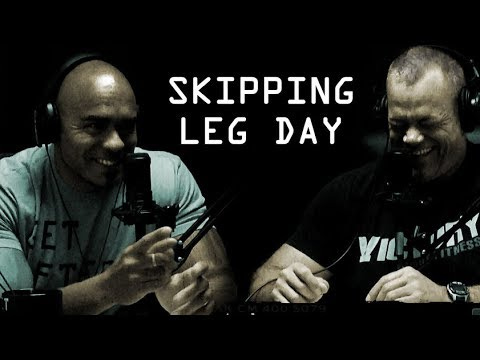Your cart is currently empty!
Category: The Cynic’s Guide to Self-Improvement

What You Can Learn From Elon Musk
“Elon Musk is kind of a hero of mine”
I wrote those words, with my own brain, controlling my own fingers. And when I wrote them, they were true.
In my defence: In days of yore, around a decade ago, it was hard to avoid the idea that Elon Musk was a kind of techno-savior. And I was quite taken up by it; perhaps not to the extent of thinking that Musk was the World’s Raddest Man, but I definitely thought that someone devoting their life to fixing climate change was worthy of a bit of hero-worship.
That particular set of words which I must reiterate I typed in communication to another human being were written as part of a pitch to an editor who – wisely – rejected my story idea. I did end up writing something similar for another publication and ended up test-driving a Tesla owned by some people who were quite lovely and ended up being fast friends, but I’m worried to look it up now. In fact, thanks to the dying internet, I can’t find it. Thank God; I wonder what I might have written about Elon in it.

My article could have been much worse. Amusingly, earlier this year, Tim Urban quietly changed his article’s title from “Elon Musk: The World’s Raddest Man” to “Elon Musk Series”. He knows. Now, I think we know better. In fact, these days (in my honest opinion) Elon Musk is a narcissistic psychopathic megalomaniac who would make Ian Fleming blush with the sheer cartoonish scope of his villainy.
And yet.
He has amassed more money and power than, probably, any one person in the world. Possibly more than in the history of the world.
Let us look further, and I’m sorry but just bear with me a moment, at the current state of the United States.
There’ll be something new by the time I send this out but at the time of writing, the latest adventures of coterie of lunatics who run the USA include musing about invading Canada and Greenland (either of which would trigger NATO to attack one of NATO’s founding members, but never mind, you’re not here for the geopolitics) deporting people without trial to a slave prison in Central America, and coordinating an enthusiastic extrajudicial assassination of a Houthi leader, feat. civilian collateral damage, via a Signal group chat that included (inadvertently) a journalist.
These are not smart people.
And yet, they kind of indisputably run the United States and any number of tributary nations in a great undeclared empire, and hold the keys to an arsenal that could end the world in about half an hour.
What the hell is going on?
How is it that the richest and most powerful people on earth are also so indisputably stupid?
To find out, let’s turn back the clock a little. With the rise of this new devilry that isn’t quite the fascism of days gone but still walks and quacks like a goose-stepping, zeig-heiling duck, people are looking for parallels, and it’s from 1933 that we get this quote that you’ve probably heard some version of before:
The trouble is that in the modern world the stupid are cocksure while the intelligent are full of doubt.
That quote is popularly attributed to the philosopher, mathematician, logician, and pacifist Bertrand Russell, and – unusually for famous quotes that get bandied around a lot – he actually said it. It comes from this short essay, dated 10 May 1933, and the full piece is a must-read – not just for what it says about then, but how it explains now.

Replace the word “Germany” with “America” and you get a modern think-piece 🙁 You’ll probably have heard of the Dunning-Kruger effect, I think everyone on the Internet has, but what you may not know is that science suggests that overconfidence can be a beneficial evolutionary strategy – one that goes a long way to explain the ascent of our new idiot overlords. It’s counter-intuitive; you might expect that nature would select for caution over foolhardiness, but the theory seems sound. Authors Dominic D. P. Johnson & James H. Fowler lay it all out in a striking letter published in Nature. “The fact that overconfident populations are evolutionarily stable in a wide range of environments may help to explain why overconfidence remains prevalent today, even if it contributes to hubris, market bubbles, financial collapses, policy failures, disasters and costly wars,” they understate. There is also plenty of research showing that narcissists, sociopaths, and psychopaths tend to exhibit overconfidence, and – even without dipping into the way that what’s left of the free political press tends to lionise sociopathic tendencies and select for those politicians who show the least shame – I think that’s got most of the modern world neatly buttoned up.
The madmen who run the world have attained such great heights not because they are smart, but because they are stupid enough to be over-confident.
That’s the bad news. The good news is: You can do it too.

This can be you! I’m not saying you should become a sociopath; quite the opposite. I’m saying that you’re already more qualified and less evil than the majority of the world’s current crop of most powerful people, so you can afford to be more confident.
And the best part? You can just do it. You don’t have to have any training. There aren’t any prerequisites. You don’t even need to think. Headbutting a concrete wall so you can achieve IQ parity with the Trump administration might help, but it’s optional. You can just go forth and… be confident.As proof: I just made all that up! Confidently! Is there any evidence that, after a lifetime of not being confident, that you can just suddenly start? I have no idea! But I am saying and doing this quite confidently where normally I’d have all kinds of qualms about evidence and truth. So it must be true. QED.
However, you may not yet have full confidence in my newfound confidence, and that’s fine. For you, and for my former unconfident self, I will spit some straight facts. In fact, this will make me even more confident. Imagine, not just being confident but confidently correct!
I just Googled “can you just decide to be confidetn”, so confidently that I hit “enter” without even correcting the typo. The evidence I find is patchy, seemingly because confidence is a somewhat subjective state. Efforts to quantify the effect of acting confidently on things like hormone levels have run headlong into the reproducibility crisis, but there does still seem to be an observable effect arising from simply acting – i.e. pretending to be – more confident, and this can lead to a greater perception of confidence among audiences, which makes you more confident, and so on. In short: if you make it, it might just be because you faked it. The current state of the science aside, I feel confident that this is one of those areas in which received wisdom will turn out to be correct, like when your nana’s nonsense about getting your nose out of a book and playing outside lest you become short-sighted turned out to be entirely true.
Besides, you can’t argue with results. Musk, Trump, Zuckerberg et al must be some of the most insecure, brittle, unmanned people ever to walk the Earth, and yet they are quite unquestionably confident. Given this, I am convinced that I will never write anything more true than the following sentence: you, reader, are brighter and better than these boors and billionaire. Your only curse is being smart enough to think you know your limits. Well, fuck that. Go on, make that call. Upload that video. Start that business. Speak at a public meeting. Run for the local council. Hell, become a member of Parliament or Congress. Don’t let confidence, or the positions of power afforded by confidence, become a trait associated only with the worst of us.
Take it back.
Go on.
I have full confidence in you.
💰This newsletter, like all my writing, is aggressively free. Kicking in with a tip or paid subscription mean that I can pay the hosting costs and occasionally purchase my bleary-eyed self a coffee, and it’s much appreciated. If you don’t want to pay money, pay it forward – literally, hit the “forward” button in your email like your Nan circa 2008 and send it to someone who might like it. Or just share the post on your socials, or leave a comment. Go on!
Apropos of something
I was in bed, scrolling through Bluesky, when I saw it. An activist and journalist I follow broke the story, moments after it happened. I told my wife.
“Are you sure? It’d be on the news sites.”
“Yeah, probably not. Then again – I’ve followed her for ages, she reported on Charlotteville, and I’ve never seen her joke about this sort of thing.”
A few minutes later it was on the news sites, too. All of them.
My immediate reaction was revulsion. Not so much at the news as the Takes which I knew were coming, as sure as night follows day. After Christchurch, everyone became a gun violence and counter-terrorism expert; after Whakaari, a surprisingly high percentage of the population turned out to be volcanologists; and during Covid, everyone online suddenly displayed hitherto unsuspected depths of epidemiological knowledge. The same segments of the population, I knew, would turn out to hold unrivalled expertise in the field of this latest Event. The media would play their part, reporting on events as they unfolded without the benefit of accuracy or context: the news version of a race to the comments in order to post “first.”
It gave me the ick enough that I put my phone in another room and spent some time installing a new stereo head deck in the car. The original, which displayed most features in 漢字 and placed the car in the middle of the ocean as revenge for having the temerity to drive outside of the geographical confines of Japan, had been some time dying. First it lost the ability to play or eject CDs, then the reversing camera stopped working. Eventually, its last remaining function – to play, without warning, from the previous owner’s vast library of Japanese country music – disappeared as mysteriously as the music sometimes arrived. We drove around with a portable speaker filling in for the sound system for, oh, about three years. It did the job but it sounded muddy and was annoyingly unwieldy to deal with.
The new head deck enabled me at last to listen to the radio – should I want to. I found I didn’t. When I did, little shots of adrenaline would make their way around my system and give me the jitters. It wasn’t good to drive to. Audiobooks and music were better.
I realised that putting my phone elsewhere and just getting stuck into a project for a while had given me a lot more mental clarity than I was used to having.
And then, as is customary, I forgot about that helpful epiphany and slowly began re-absorbing everything I saw on social media and news feeds, like a sponge soaking in the jet from a fire-hose. I wrote most the above as a draft newsletter and forgot about that too.
That Event was back on July 13, 2024. Now, a related Event is rearing its hideous head and I’m here to tell you: you don’t have to tune in.
Turn off, tune out
One of my more inconvenient scruples with this newsletter is that I try to only tell you about self-improvement things if I’ve tried them and found them to work (or, as is more usually the case, the opposite.)
This is one that works. I know because I’ve done it before and have resumed it for a while now: I don’t look at social media or news until my knock-off time, at 5:30 pm. At earliest.
I’m not worried about missing anything. I learned when I did my “dopamine detox” that if I really need to know something, someone will tell me. And a quick check-in tells me pretty much everything I need to know. I don’t have to scroll for hours.
It took me a while to get here, but it’s stuck pretty well for around a week. I plan to keep it up because it gives me something precious: time, and sanity. Every time I have managed to take serious time off the socials I’ve just kind of started getting stuff done by default. Useful things, not artifacts of toxic productivity. Long-broken car stereos get fixed. Shelves get built. Things get tidier. More work – often much more work – gets done. Newsletters get writ. My self gets improved.
It’s all very well for you to say “walk away,” Mr Privilege, but we owe it to those less fortunate to bear witness to their suffering.
Yes! It is important to face the truth that our sociopathic rulers create endless horrors, and to listen to those affected. Not being subjected to horrors is indeed privilege, not to mention the myriad other advantages I get by default, thanks to being a white man in a society created for white men. My aim is to use what I have, to help where I can. Being welded to my phone, gawping at the horrors, isn’t helping anyone.
Caveats
This isn’t being written to make anyone feel guilty. There’s enough of that out there without me adding to it. As often, this is (selfishly) written as the results of an experiment with a sample size of one: me. As always, your mileage can and will vary. Consider the following:
“I’m a creator. My income depends on me posting my work on social media, and engaging so people will see it.”
Then carry on, comrade, and post up a storm. We could all use more art in our feeds. Posting isn’t my gripe; neither is engaging. My problem is with scrolling. Maybe I’ll make it up into a design, riffing on something highly culturally current like Game of Thrones. A Kraken like the sigil of House Greyjoy, tentacles wrapped around a human brain, imposing text declaring: We Do Not Scroll.
“I’m a journalist. My job is to take samples from the firehose, so I can tell others what’s important.”
You’re doing God’s work and we thank you for it. Of course, the best journalism is usually engaging sources and trawling through documents and asking questions no-one else is, not duelling brainworms on Twitter, but you knew that anyway. We need people who make sense of madness, and I’ll still be reading your stuff. You couldn’t stop me if you tried.
“I’m a member of the X #resistance. My job is to find the worst things said by the worst people on earth and make sure as many people see them as possible.”
Please stop. If all you’re doing is trawling for Bad Shit and signal-boosting it then you’re not aiding; you’re abetting. The below post sums it up well, and suggests an alternative.
reminder: this is the point of the barrage of batshit appointmentsif you are a tiny bit freaked out by each of them it will add up to “too freaked out to do anything about anything”pick ONE thing at a time to be upset about, decide what action to take on it, then follow through, repeat
— Yell In a War (@jelenawoehr.bsky.social) November 20, 2024 at 4:20 PM
(I found that while taking a quick Bluesky break while writing this article. I am aware of the irony.)
Authoritarians and social media oligarchs have something in common: they want you scrolling. They want you anxious. They want you despairing. They want you paralysed. They want you inactive, while thinking you’re doing activism, endlessly thumbing your distraction rectangle in between ads, and it’s this behaviour that I believe is a problem, if not The Problem. I am sure there are people for whom lengthy doom-scrolling sparks action, or who genuinely enjoy swimming in the sea of insanity. If you are one of them, good for you. Really. Sadly, I am not. I do better – almost absurdly better – and I do much more when I am not jacked to my eyeballs on digital jenkem. You might too.
So if there is something happening today – and whenever you read this, it will be today, and there will be something horrible happening – and you felt like you needed permission to log off or do something else for a while: this is it.

It’s THAT time again
The other day, while playing the famously egalitarian game of “golf” with one of my CEO buddies, we had a completely normal conversation, as humans often do. This being That Time Of Year, the topic of New Year’s resolutions came up. I was all ready with an almost titularly cynical spiel about how everyone thinks NY resolutions never work when my friend said something jaw-dropping (doctors hate him.)
The previous year, he’d made a resolution to learn conversational Chinese… and he’d actually done it.
To be fair, I did not immediately fact-check him on this, as my level of conversational Chinese is zero. He could have said 我不会说中文 and I’d have believed him. I did quiz him a little more about his method, though, as keeping a New Year’s resolution is something I’ve long resolved to eventually do.
It was pretty simple, he said: he had a group chat with some mates. They told each other their (achievable) resolution at the start of the year and checked in on each other throughout.
And they pretty much all achieved it.
That is probably all the information you need to replicate his success for yourself but feel free to keep reading! I suppose I was meant to leave the big secret until the end of the article but I’m just not very good at that kind of bait-posting. Or perhaps there’s more to it. Surely, success can’t be that simple? To find out, I decided to interview him, Diary of a CEO-style, to extract his secrets and sell them to the world like a human Juicero machine.
Interview with a “CEO”
You’re Jamie Moore, world-famous CEO of enigmatic golf company Q. I doubt there’s anything about you that anyone doesn’t know, but just in case something’s slipped through the cracks, tell us a little about yourself.
Sure. For 15ish years I ran website design companies but then in the Covid times I switched career to start a golf product company with my father.
We make an all-in-one adjustable golf club that can be used for every shot – putting, drives, chipping, bunkers etc. It’s fairly early days, but we’ve had some good traction selling them in 55 countries around the world (mainly the US)
Right. Obviously, we are both old, and my memory is failing. Refresh it by reminding me how we know each other?
We attempted law school together and each wisely decided to bail out. Definitely no ragrats here.
While at uni, we bonded over a range of things including the arcade game Dance Dance Revolution, playing pool and hosting a radio show.

I didn’t have any new images of Jamie so I used this one. Fascinating! Now, Tell me about that New Year’s Resolution accountability scheme you talked about when we played such extraordinary golf on that luxury course the other day.
What a place. Tahuna Golf Course. Home of the legendary 4th hole that is nowhere near the 3rd hole.
Yes, I’m part of a group of friends that for the past 3 years have set New Years resolutions each year… and actually check in on their progress throughout the year!
What did you, personally, achieve (or aim to achieve)?
A couple of my favourites:
- Learned to swim (200m of good freestyle, complete with tumble-turns)
- Learn to like Marmite and Vegemite (one of next year’s goals – backstory: these were my swearing punishment foods growing up so this will take some undoing!)
What were your resolutions for 2024, which is somehow almost over, and how did it go?
- Complete a triathlon (was progressing well, but had some back issues that meant the running was no bueno and had to abort).
- Speak Mandarin Chinese (hard to quantify – which in hindsight was a weakness – but I’d give myself a pass. I’d say I’m now OK at basic conversations on select topics)
- Make a pasta, preserve and pastry from scratch (achieved the first two but not the third)
While not the most stellar success rate this year, the thing that makes it feel like it was a success was the regular discussion and reflection throughout the year.
What are some of the cool things other people have done?
- Eat at 5 ethnic restaurants you’ve never tried before.
- Run a marathon
- Host a murder mystery night
- Create an original 3-track EP
- Shoot a movie with your family as actors
- Stay a night in a DOC hut
- Create a family photo album
Why do you think doing resolutions this way works?
It’s a good question actually – since I had set goals like this in the past but never lasted beyond Jan.
I think it’s the combination of a few things:
- A ringleader to initiate it
- A group chat where the ringleader asks for updates every month
- The group already knows each other well
- The defined structure: 2x self-imposed goals, 1x goal
But on reflection, the most important factor of all is setting goals that are specific and things you genuinely wish you could achieve.
Do I have your irrevocable, legally-binding, un-indemnifying permission to ahem utilise this NYE resolution accountability scheme of yours for the betterment of Cynic’s Guide subscribers?
You do.
What’s your secret?
I quite like the song Lose You To Love Me by Selena Gomez.
(To success, obviously.)
Oh, disregard last answer.
I guess it would be embracing the slow power of compounding returns – when it comes to learning, growing a business, self improvement etc.In the unlikely event that there is someone among my subscriber base that does not know about your world-beating, adjustable (and now ultra-portable) Q golf club, please outline the details and any purchasable special offers in the following blank space.

The Q club in action. I am not being paid for this, which is probably an oversight on my part. begin pitch
We’ve just started preorders for a second generation of the Q club.
This has an 8-in-1 adjustable club head – and a two-part shaft that means it can fit in a small suitcase.
It’s all about giving golfers a simple and lightweight experience on the course – but also when travelling for golf.
If subscribers are interested, they can learn more at https://q.golf
end pitch
Josh again. So yeah, I think that’s pretty cool! (The New Year’s Resolution thing, although the golf club is also neat.)
In fact, I thought it so cool that Cynic’s Guide readers might like to join in. I’d been wanting to set up a subscriber chat on an app like Discord for a while, and this is the perfect excuse. Plus, I’m interested to see what resolutions people come up with, especially in the bit where they get to pick ideas for other people. I’ve embedded a sign-up form below, but if you can’t see it for some reason, here’s a direct link: New Year’s Resolution Tracking 2025.
The form asks for your email so I can prevent spammers and invite you to the group chat, but seeing as you’re probably reading this newsletter in your email that probably won’t be a problem. As for the resolutions, I’ll start: Mine for this year are:
- To do a muscle-up (Rating: very hard, and you may recognise this as a previous goal from this newsletter, which I obviously did not achieve. But this year will be my year!)
- To play the drum part in Toxicity by System of a Down to a reasonable degree of proficiency (Rating: possibly harder. I don’t actually know – drummers, feel free to laugh at me. It’s a fantastic song though, and great for hangovers.)
You don’t, of course, have to do the NY resolution thing! It is completely optional, and if it all seems a bit too non-cynical for you, that’s fine. This might help on that front: if you want to give it a crack but worry that you might find it all a bit much and drop out, no-one else will actually care.
But I’ll venture that people will care if you do achieve your resolution, and that might make it worth trying after all.

The best self-help book I’ve read
It was only a few short months ago, not long after the birth of our second child, that I had the vain – and, in hindsight, very funny – hope that I could continue writing this newsletter during her early infancy.
As it turned out, I could not.
Or perhaps I could have. I dunno. Other writers seem to manage! What I do know is that while I’ve had a whirlwind and often quite wonderful few months taking care of a beautiful new baby, I’ve also never felt more behind on, well, everything.
I might have felt this way when our previous child was this age. Unfortunately, I can’t remember, because sleep deprivation.
(I’d also meant to keep a journal during this time so I’d actually have some memories of it, but my curious aversion to journal-keeping keeps getting in the way.) Anyway, in all honesty, November would have been a hellmonth even if we didn’t have a new arrival. We had family over to stay, which isn’t something we could enjoy when the first kid was born because of that whole global pandemic malarkey. That wasn’t the hellish bit; it was lovely to have them over. The problem was that we began the month by contracting Covid, all together, as a family. Hm. It’s almost like the pandemic isn’t quite over, isn’t it? Someone should look into that.
It was nasty. I feel like I’d have managed the virus better if I’d been able to nurse the thumping headache and weird fatigue by staying in bed and drinking chicken soup, rather than looking after ill children. No sooner were we testing negative than the first tranche of family came to stay, which was (as mentioned) wonderful and life-affirming but didn’t afford any time for recuperation. And once they’d flown the coop I came down with the most vicious, uncompromising strep throat thing I’ve had in living memory. I ran fevers, and a mild inability to climb stairs faster than several minutes at a time, for two days before a dose of antibiotics killed whatever was trying to kill me.
As of the last week or so I’m much better, and the baby (who for the purposes of this newsletter I will name Pandora) is sleeping better. I think one may be linked to the other in some way. That sense of behind-ness, though – it’s never been worse. My work suffered, especially given I’d only just come off paternity leave when I got sick, and I’d just picked up fresh responsibilities in my job. The yard was overwhelmed by waist high grass, the garden got taken over by a Triffid-like mint infestation, the other undone tasks became even undone-er. It did not spark joy. In fact, I kept hearing this unhappy little ditty play in my head:
After some weeks of frantic effort coupled with the rest of the country slowing down somewhat for Christmas, it’s all starting to relent slightly. I feel like I’ve just caught a breath after being held down by crashing waves.
(In what is probably not a coincidence, my wife started reading How To Keep House While Drowning on audiobook around a week ago. A few people here have recommended it so I’m going to pick it up too, and listen to it while I wear the infant around the house like an inconveniently heavy, uncomfortably warm, and incomprehensibly precious jacket. )
With the recap recapped, I want to talk about something that helped pull me out of this especially funky funk.
It is, of course, a self-help book.
I’ve shouted out John Birmhingham, author of He Died With A Felafel In His Hand, a few times in the Cynic’s Guide. He’s long been a favourite writer of mine, since I discovered his oeuvre leafing guiltily through the problematic Ralph magazines I bought in my late teens. I may have purchased them for the pictures, but I did end up reading the articles! Of late, Birmo has written frankly of his own battles with procrastination viz online time-wasting. After this touched a chord with readers of his newsletter, he decided to write an honest-to-god self-help book, which he made free to subscribers for a couple of days as both a kind gift and a clever way to juice Amazon reviews.
And the book, which rejoices in the search-engine-optimised title of “THE COMPLETE BUT LITTLE BOOK ABOUT PROCRASTINATION: A SELF-HELP GUIDE TO BREAKING FREE OF YOUR BS“?
It is fucking great.
Available now at your favorite digital store!THE COMPLETE BUT LITTLE BOOK ABOUT PROCRASTINATION: A SELF-HELP GUIDE TO BREAKING FREE OF YOUR BS. by John BirminghamJB has managed to do what no-other self-help author ever has, in my quite extensive experience: keep it short. The book is a blessed 51 pages long, and it is relatable. If the following passage doesn’t resonate with you, you are reading the wrong newsletter:
You have a problem, but it’s not laziness. [Procrastination] is a human problem. It messes with people no matter their gender, their class, their culture, whatever. We procrastinate about household chores. We put off important personal decisions. We leave our taxes too late. We sit, staring at the blank page, the empty screen, our stomachs churning, our spirits low.
It also hits you – or at least me – right in the fear feels. Procrastinate as we might, there’s an ultimate deadline there’s no getting away from, and after my recent bout of illness this one rang a knell:
I didn’t grow out of it. If you’re reading this, chances are, neither did you. Lying in that bed, a bunch of tubes punched through my ribcage, I suffered the horrifying realisation that comes to all procrastinators in the end. It really was the end. I’d left it too late. There’d be no wriggling out of this.
Drawing on contemporary psychology and techniques like cognitive behavioural therapy, and working with rather than against the fact that his target audience is incredibly likely to put his book down due to a sudden urge to browse the Wikipedia entry on alpacas, Birmingham goes straight for the jugular of procrastination. What is most off-putting about putting things off is that you know it’s illogical and that it will come back to bite you, and the reason for that — Birmingham writes, with plenty of science to back him up – is that procrastination is the all-but-inevitable outcome of emotional dysregulation.
It’s about discomfort.
Imagine I have a big project due in a week. I know I should start, but instead, I find myself cleaning the house, checking emails, or plating up my fourth rewatch of Justified. What the fuck, JB? When I thought about my daunting task, my brain did not get that immediate dopamine kick. In fact, thinking about all that hard work possibly even turned off my dopamine tap and crashed me into a trough—making me feel even less motivated. To escape this uncomfortable feeling, my treacherous brain starts seeking out something, anything, to provide a quick dopamine fix. And here comes my old friend the donut, the doomscroll, the infinite void of streaming TV. Anything feels better than sitting in the discomfort of the work.
The only drawback – and this is not Birmingham’s fault, it’s your neurobiology’s – is that working with the discomfort that gives rise to procrastination is obviously uncomfortable. He offers an admittedly cornball acronym, as is traditional in CBT, to help remember the required steps before tackling a given incidence of procrastination. I am reproducing it here not to try and dick over JB’s book sales but because writing things down is about the only way I remember them.
RULER: Recognise, Understand, Label, Express, Respond.
The way I’ve put this into practice, when facing a potentially delay-able task like “my excellent and usefully bill-paying job” or “writing a catastrophically late newsletter for inexplicably patient subscribers” is to open up a blank, plain-text document and dump whatever mess of emotions I am experiencing in there.
This is all kinds of yuck. Seeing what you’re feeling on the page – often, in my case, self-loathing and shame and anxiety expressed in what can be quite worrying terms – is confronting. The good news is that writing these things down before starting a job feels a bit like procrastination, which is a helpful little hack. And then once I’m done recognising, understanding, labelling, and expressing, I delete the document and it all goes away. Then I respond, by actually doing whatever task my emotional maelstrom was sucking me away from.
It is of course not necessary to do this exercise via the written word: you can do it all in your head. Or perhaps, if you work alone or don’t mind looking like you’re rehearsing a role in Glengarry Glen Ross, you could say it aloud. As with any other self-improvement exercise – say it with me, I’ve written it enough times here – YMMV. Your Mileage May Vary. I suppose I should add the caveat that because everyone is different this method may not work for you at all, but I suspect that it might, and I am very happy because at this point in time it does work for me.
Despite only being 51 pages long, this isn’t all that’s in the book. TCBLBAPASHGTBFOYBS is a dense little nugget, the neutron star of self-help texts. There are plenty more tips and tricks that are only to be deployed once you’ve accepted the inconvenient truth that fixing procrastination very likely requires addressing some emotional dysfunction. But it’s eminently doable, and it’s helped me enormously.
It might do the same for you. It’s worth a punt: the book costs less than the coffee you were probably planning on buying. And if you’re (somehow, in this economy) feeling flush, why not kick in here too? I want my writing here to be free forever, but your contributions really do help keep the server lights on.
Thank you, as always, for reading. I hope to be back sooner than a three-month unplanned hiatus: the New Year is upon us, and it’s like catnip to the self-improvement-obsessed. I have something coming up to mark the occasion that I think you’ll like. In the meantime, feel free to say gidday in the comments, it’s been a hot minute but I’d love to hear from you.
To close, here are are some wise words from my four-year-old who got interested in the laptop while I was writing this.
wqbo1`12434456789-0
stop
goSo there you are. Stop, go. And a very Merry Christmas to you all.
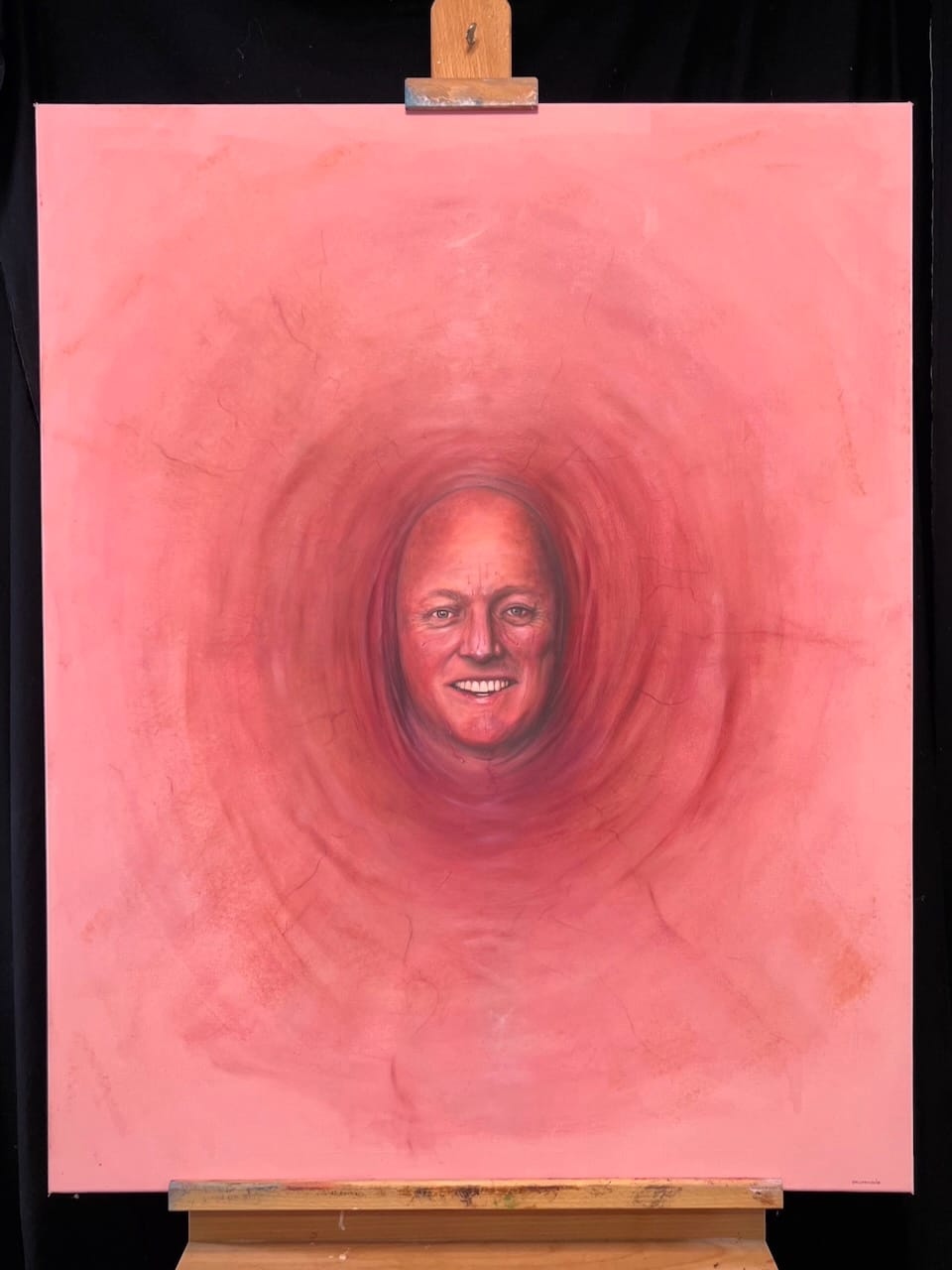
I painted the Prime Minister
I am writing this using voice transcription software because at the moment I’m slowly pacing about the house, carrying a two-week-ish old infant around the lounge room, because if I stop for more than about 30 seconds she’ll realize I’m not her mother and I’m of no use to her because I don’t have mammary glands and she’ll start crying so please bear with me – it might be a little bit disjointed.
In the previous newsletter I talked about my “dopamine detox” (a nonsense name for something you can’t actually do, and yet it was quite helpful) and about how it had enabled me to do a painting and… yeah.
This is the painting.







A Photorealistic Portrait of Christopher Luxon. Bananas for scale, and to stop the white balance from acting up as the phone camera cannot process what this image is actually meant to be without some outside context.
I even did a TikTok, which you should not watch if you are on your own dopamine detox or have a weak stomach:
@tworuru I did this beautiful photorealistic portrait of our incredible Prime Minister @christopher luxon now for sale on TradeMe, half proceeds to charity #painting #acrylic #tutorial #art #politics #nzpolitics #nz #beautiful #photorealism #fyp
For more information about why I would do such a thing I’m going to leave a Q&A that I did with David Farrier on a paid edition of his Webworm newsletter.
I think it’s fairly comprehensive and should answer any of the questions that you might have had and possibly even more.
Other questions are being answered at the TradeMe auction that I am currently running for this “artwork“.
I suppose the connection to self-improvement isn’t all that tenuous because without intentionally avoiding aimless scrolling for a couple of weeks I can honestly say that this painting wouldn’t exist.
Whether that is a net good or a net bad is kind of up for discussion but I think it’s probably a positive, because a big part of the reason I started this newsletter experiment was to see if I could find space in my life to get more art done. A lot of that space was to be carved out at the time that I spent aimlessly reading news websites and scrolling social media, and as unlikely as it may seem, this hideous painting feels like a very real triumph on my self-improvement journey.
So with that I will cut to the Q&A which – given our audience overlap you may have already read on Webworm – and I’ll ask gently that if you have any questions to ask me of this painting that you leave them up on the TradeMe auction as the Q&A is really where the actual art occurs, given the artistic value of the painting itself is… well, let’s say, questionable.
As always thanks for reading – do look forward to my next voice-recognition-penned diatribe whenever I can capture enough sleep to have the mental faculties to actually write one.
A Q&A with David Farrier & Joshua Drummond
Dear God, what is this abomination? Please explain what is going on in your mind – why are you doing this?
Man, I’m not entirely sure what it is or why I’m doing it. I guess there’s a bit of a backstory. Part of it is that most of what I paint is cute stuff, self-conscious kitsch, like birds wearing hats or landscapes from video games.

A scene from No Man’s Sky A few years back I decided I wanted to see if I could learn to paint photo-realistically. It worked, kind of – I ended up spending a bit more than five years working sporadically on a painting of our cat that was meant to be a birthday present for my wife and I only finished shortly before she died. (The cat, not my wife.)
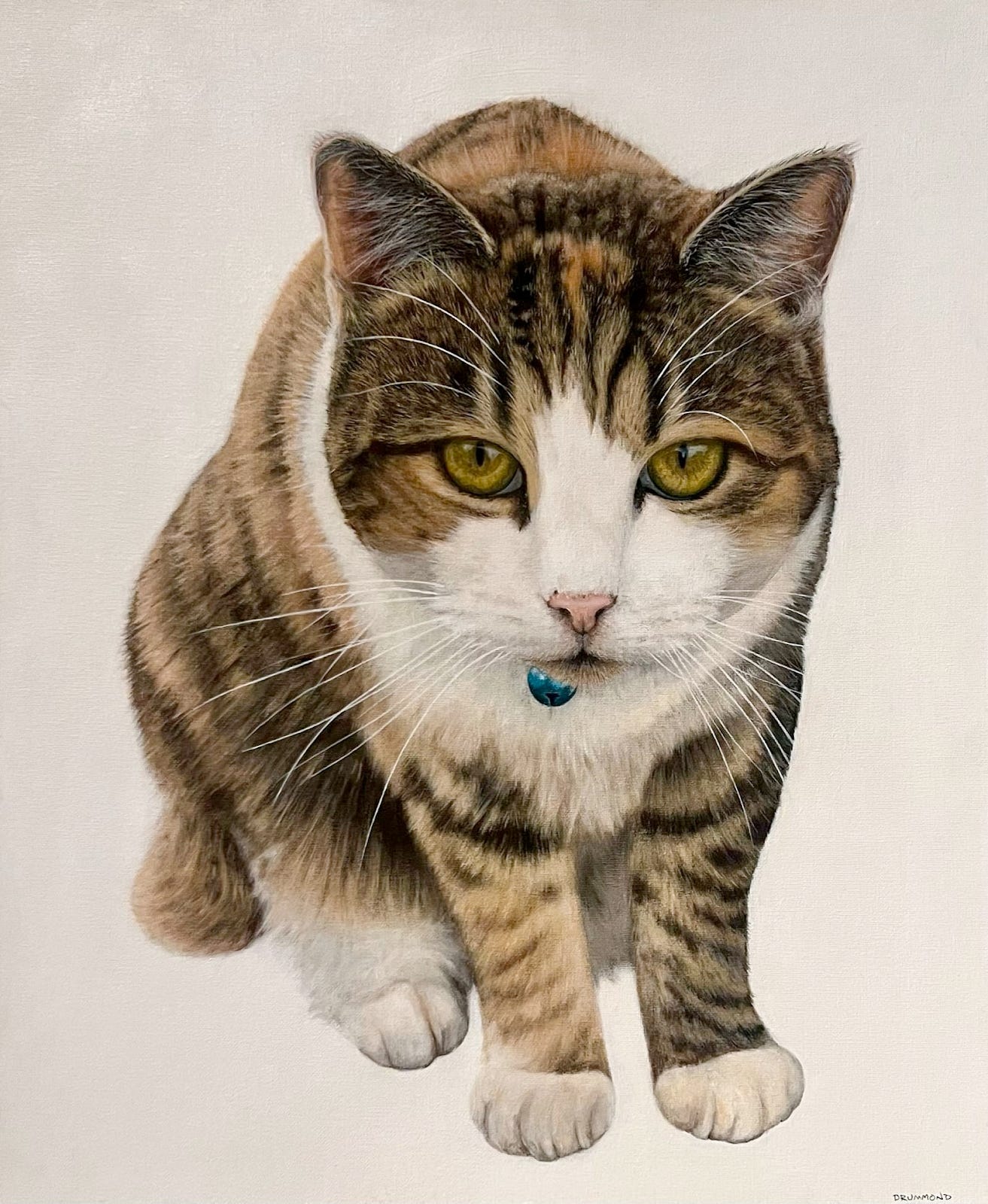
After I finished the painting I decided I never wanted to do any genuinely photorealistic stuff ever again, as it’s too fiddly and time-consuming, but I was able to use the skills I’d picked up to do a decent painting of a Bored Ape as payment for a mate who’d helped me out with my parody NFT project, the Bird Hat Grift Club.
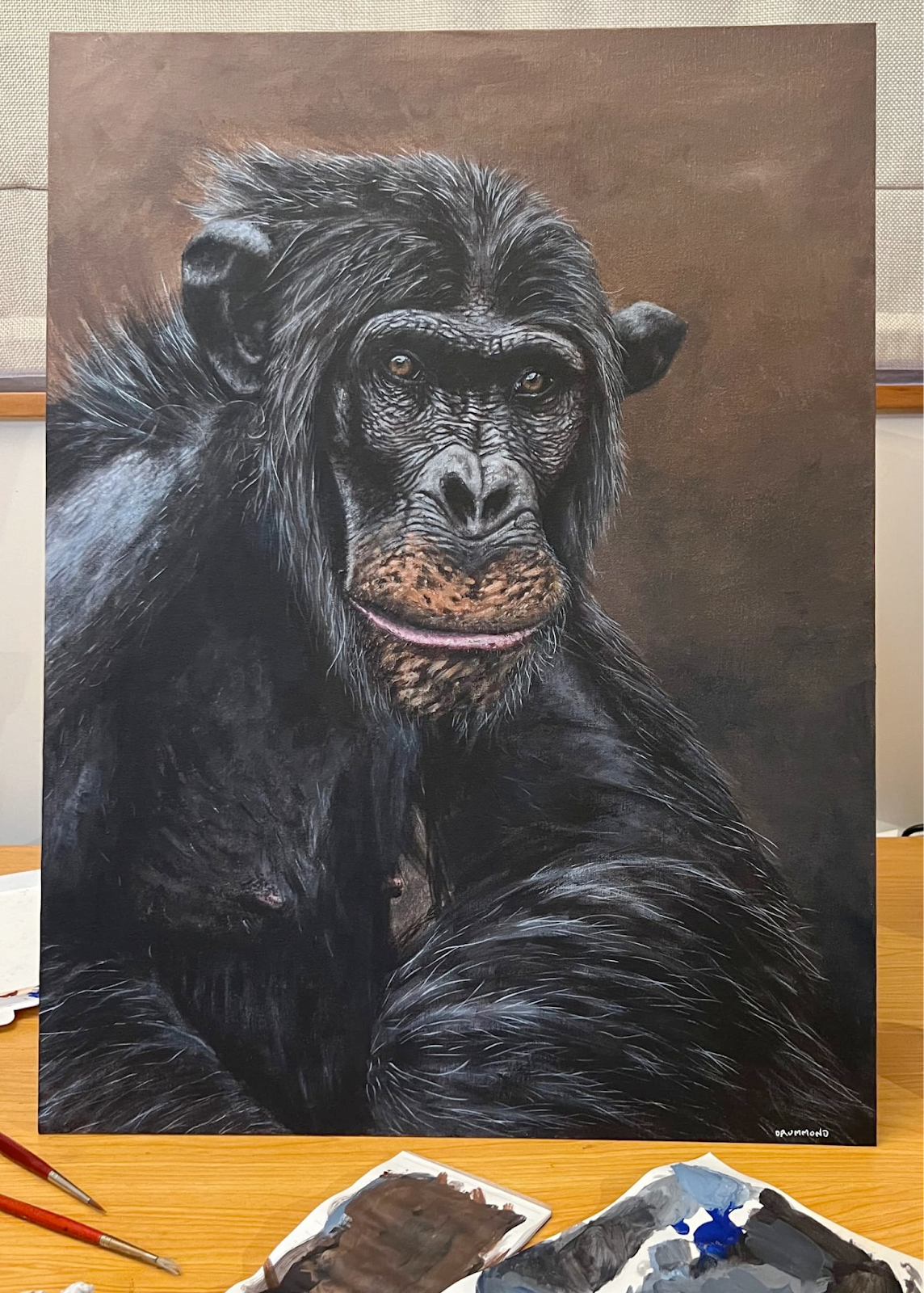
A Realistic Bored Ape I ended up taking a similar approach with this portrait of the Prime Minister – realistic enough, but not so you’d mistake it for an actual photo.
The other part of the story is that I’ve done this a couple of times before, that is, painted portraits of people I don’t have a high opinion of and sold them on TradeMe.
Dislike can take up a lot of mental space, and I’ve written quite prolifically of the agony of having no real ability to change what is quite clearly — as in scientifically, objectively — wrong with the world.
I guess painting is a way of processing this.
The people I’ve painted so far have either been prominent mainly because they’re so objectionable (like Michael Laws) or have been gifted lead roles in making New Zealand a significantly worse place (like Christopher Luxon.)
And I guess I’m just kind of fascinated by politicians of all stripes; the way that they have to sacrifice their humanity to gain and maintain power. Especially with Luxon, you end up with this caricature who speaks entirely in trite slogans and gormless cliches and never seems to respond sincerely to questioning.
I find this so weird and objectionable — people always talk about how politicians should be “someone you’d like to have a beer with” but if someone showed up at my house talking in the fundamentally Martian patois that top politicians adopt I’d kick them out.

A Relaxed Painting of John Key Another thing is that I don’t have a very high regard for my actual artistic skills, and I think contemporary art is mainly a grift that enables the ultra-rich to either appear learned and magnanimous or just indulge in money-laundering.
This limits my chances for a career in the contemporary art world. I’m fine with that, art is very much a part-time gig for me, but what I do consider myself good at is TradeMe auctions. The real art isn’t the painting, it’s the auction and the Q&A that arises. That’s where I have the most fun, anyway.
I guess the last part of the reason I did this is I just find it so completely absurd, to the point that I kept cracking up while working on some detail of the painting.
I’m very aware that it’s quite a strange thing to do.
And that might stem from the fact that I’m very sleep-deprived, as our daughter was born just a few weeks ago, and I’ve got my son crawling around on my lap as I write this.
It all adds up to create an interesting mental space.
What gear did you use? How did you paint this? How long did it take?
It’s acrylic paint on canvas. I used the biggest, cheapest canvas I had: it’s a metre tall. I’ve had it for over a decade. I don’t know where I got it, and I could never think of the right painting to put on it, and as I moved houses and such it just kind of came with me getting more and more decrepit.
It was covered in spiderwebs and cat hair and dead insects, so I decided it’d be the perfect substrate for a portrait of the Prime Minister. I used acrylic paint because I’m familiar with it, even though it’s probably not the ideal medium for a painting like this.
The best thing about acrylic is that it dries very quickly. The worst thing is that it dries very quickly, so you have to be sitting at the easel with a little spray mister thing to keep the surface moist if you want to blend paint on the canvas.
Occasionally, if you want to make a quick blend or correction, it makes sense to lick your finger and smudge the canvas, which is why the auction (truthfully) describes the painting as being 0.1 percent body fluids. It’s interesting to think there’s some of my actual DNA in it, and that some of the painting is probably in me.
I hope it’s not too toxic.
Oh and it took about a bit over a month to paint, maybe 30 hours total?
Maybe a weird question, but did you listen to any music or podcasts while painting it?
Yes. This is going to sound like the biggest suck-up ever but I did listen to Flightless Bird while I made it — the “Navy Dolphins” and “OnlyFans” episodes. I also listened to Behind the Bastards; I’m a big fan of that pod and they had a weirdly appropriate two-parter about the “evilest painter,” Thomas Kinkaide.
I also listened to an audiobook of The Ministry for the Future by Kim Stanley Robinson, a book I reviewed for The Spinoff. My friends and I exchanged a lot of rambling voice messages.
And there was a good mix of music. The soundtrack to the 2016 Doom game, a bunch of shoegaze instrumental rock like Mogwai and Maybeshewill and Godspeed You Black Emperor, a band called Berlinist, the album Typhoons by Royal Blood, some Radiohead and Low Roar, and in the end phases of the painting I got really into Incubus again for some reason.
I am looking at this painting and my brain does not want to process it. Please tell me, as the artist, what is going on here?
You know that internet gag where someone sees something awful that leads them to comment “what a terrible day to have eyes?”
That’s what I’m going for.
If your brain doesn’t want to process it then it’s working. I love that sort of thing. For an example, I really like Henrietta Harris’ work — she renders people (and cats!) in this rich illustrative style but with multiple eyes or noses or distortions in the picture that make it quite genuinely difficult to tell what’s going on and the overall effect is enjoyably disturbing.
For the Luxon portrait, I could tell it was doing what I wanted it to when I took a friend down to my basement studio without hinting at what I was working on and she screamed when she saw it.
It was very important that Luxon look as much like Luxon as possible, while his …environment looked as surreal and disturbing as possible.
Also I should clear something up.
A bunch of people who’ve seen the painting seem to think it’s a butthole. It’s not a butthole.
If your butt looks like that, seek help urgently. It’s just meant to represent flesh, something between elbow skin and a throat and an areola and a boil and varicose veins. Human skin is weirder the more you think about it, right? We’re just naked flesh covering pulsating veins topped with a knob of hair, if we’re lucky. (I’m not, and neither is Luxon.)
Originally, the painting was meant to be Luxon’s eyes and nose and mouth in the centre of the picture with the rest of his face stretched across the canvas a bit like the Last Human from Doctor Who, but I didn’t have the artistic skill to pull that off. Then I had the idea of making it look a bit like Jim Carrey emerging from the robot rhino in Ace Ventura: When Nature Calls, except with Luxon kind of joined to whatever he’s emerging from, like the uvula at the back of your throat.
And I wanted him to look very happy to be there, just thrilled off his nut, but also with a kind of grimacing grin like Hide The Pain Harold or the old Flight Centre captain a few seconds before the ad ended. Because I based the portrait on what I think was Luxon’s LinkedIn profile picture, it mostly works.
Do you want Luxon to see this, and if so what do you want him to take from it?
Sure. There’s a good chance he sees it, but if he’s anything like my previous subjects he’ll refuse to comment.
On the other hand, it’s 2024, shame is the new fame, he’s got a social media team, and there’s every chance he tries to make some kind of hay out of it. While I hate to break the character I’ve put together for the auction, I’d like to get ahead of any attempt to leverage this. What I want him to take from it, and what he absolutely will not, is: people see through you.
And he — and you — should be a bit horrified by this, actually.
For me, what’s creepy about this painting isn’t Luxon’s sweaty, grinning face; it’s what’s implied to be behind it. Of course the painting is meant to be gross and funny but, if you’re looking, it’s also meant to be frightening, because it’s representative of the insane situation the country and the world are in.
Behind that grinning mask, that millimetre or less of paint, is a howling vortex of anthropogenic anti-reality bearing down on us to devour all possibility of a decent future. If you saw the mini-series Chernobyl, that show had the perfect metaphor: the gaping maw of an open reactor; the cost of lies.
We’ve put all this carbon in the atmosphere, incurring a debt to the laws of thermodynamics, and physics is coming to count the cost. And Luxon and his ilk are — somehow — pretending that we don’t need to do anything meaningful about this; instead we need to do all the things that led to the problem, like neoliberal economics and fossil fuel production, harder and faster and more cheerfully. I find that inhuman, and terrifying, and so should you.
Ideally, Luxon would too.
But he won’t.
Just to be clear again, where is the money for this auction going?
It’s currently up for auction with half of the proceeds split between Rainbow Youth and Kiwipal, the Kiwi Trust for Palestinian Children’s Relief.
As an evangelical Christian, I’m sure Luxon will be enthused about both those causes. The other half will be going to a cause I like to call “buying food for my children.”
Is there anything else you’d like to add? This is your time to shine.
I am very tired. Part of this is the new baby in the house and part of it is that I clearly have too many hobbies. You can purchase my artwork here.
I have two newsletters: one about self improvement, and one about media and politics that I find too depressing to update.
I write other stuff too. For a completely different product of dwelling on dislike: if you don’t enjoy the heel turn JK Rowling has taken, read my Harry Potter fanfic. What a great way to close out this Q&A!
💰This newsletter, like all my writing, is aggressively free. Kicking in with a tip or paid subscription mean that I can pay the hosting costs and occasionally purchase my bleary-eyed self a coffee, and it’s much appreciated. Please feel very free to do either.

The UNBELIEVABLE results of dopamine detox
Last week, and by last week I mean “two weeks ago,” I wrote about how I was mid-way through a dopamine detox, which is a terrible name for something that isn’t actually possible. What it actually entailed was avoiding social media and video games for a couple of weeks.
What I wasn’t expecting was for my life to change overnight.
The reason I wasn’t expecting my life to change overnight is because it’s a meaningless cliche. Your life is always changing, overnight or not. However, life does contain milestones, and a few remarkable things did happen. I’m sure some of those things had something to do with the dopamine detox, while others might have been mere happenstance or coincidence. Am I going to identify which is which? Like hell. Self-help never does that: in a given seminar, newsletter, online course, or book, all positive changes that occur to the reader or consumer are assumed to be a consequence of said seminar, newsletter, online course, or book. Dopamine detoxes are no different. Online, you can find no end of ads and testimonials where people who’ve subjected themselves to varying degrees of dopamine detox (everything from “avoiding video games” to “spending a month not socialising and avoiding bright lights at night lest it spike dopamine”) credit it with extraordinary life changes. If the ad below is anything to go by, I can now expect to get promoted at work, get rid of stress, become “the alpha man,” and transform “into energized, focused, and well-rested person,” as well as become “fully rebranded.” Exciting!

I believe, foolishly, that my readers are intelligent enough to discern which of my last several week’s experiences can be traced to my dopamine detox.
Here are a few of them.
1.) My memory improved?
A couple of days ago I had cause to spell out my surname on the phone which is always a giant pain. “D” sounds like “T” and “M” sounds like “N”, and I have the usual flat Kiwi accent making it all worse, which is how I have found myself opening fairly important letters and emails addressed to someone called “Joss Trumnod.” Many years ago I decided to fix this by learning the NATO phonetic alphabet, which I never did. Or, at least, I could never remember it properly. But this phone call was different: I ripped out Delta Romeo Uniform Mike Mike Oscar November Delta like it was nothing. Unfortunately the guy on the phone had never heard of the phonetic alphabet and seemed to think I’d had a stroke, but no matter. I’m now quite sure that dopamine fasting helps you remember how to talk like a fighter pilot engaging tangos in the skies over Eastern Europe. Someone should do a paper on this.
2.) My sleep got worse
Over the course of my dopamine detox I noticed that my sleep suddenly got worse. In fact, I can track it to an exact date: September 11 to 12, 2024. That night was utterly insomniac: I got literally no sleep at all. It was horrible. Might this have been a side-effect of all the increased dopamine swirling around my cortex? Perhaps! In a sleep study where participants were apparently given cocaine before having their brains scanned, it seemed that dopamine had something to do with sleep/wake regulation. “Indeed, increased potency and efficacy of cocaine was observed in relation to sleep relative to the wake state, a highly translatable finding…” the authors state. Who knew? Sadly, I had no cocaine, so my sleep deprivation must have been due to something else. I will continue the research.
3.) Parking got easier
According to Internet, having more dopamine to hand can make you more alert and improve your decision-making abilities. That’s certainly true for me, and there’s nothing more universally applicable than my specific lived experience. The other day, I was looking for a parking space, and one opened up right in front of me. To be fair, this sometimes happened before the dopamine fast started. I’ve been “manifesting” favours from an obliging universe, a la The Secret, for a long time now. (When it happens while my wife is in the car I look knowingly at her and waggle my fingers about my head while saying “maaaaanifessssstingggg” which never fails to be incredibly funny. Just ask her!) This time around, it’s different. The car parks I’m finding tend to be around the fronts of buildings like shopping centres and supermarkets. It’s very obliging of my increased dopaminergic capacity to do this, but I need to be careful – all this extra convenience means I’m walking a bit less, which might lower my dopamine levels. I’d hate for this to backfire on me.
4.) I’m getting up a lot earlier
Despite the occasional severe insomnia, I’m getting up much earlier in the morning. Most days this week I’ve been up at or before sunrise. Dopamine, as we’ve learned, plays a role in sleep/wake/cocaine cycles, and it’s been said that waking up early and watching the sun rise can help optimise levels of this neurotransmitter. Andrew Huberman, the superhuman scheduler of six simultaneous girlfriends, and an army of online acolytes who remix his content sure seem to think so. Perhaps it works in reverse also? If seeing the sun rise can help me have more dopamines, maybe having more dopamines increases my desire to see the sun rise! Either way, perhaps it’s helping me shake off a lifetime’s habit of night owlism.

Since I started writing this newsletter, I’ve never stopped seeing thumbnails like these 5.) The highs are higher and the lows are lower
Dopamine plays a role in the regulation of emotion, and many influencers who I’m sure are just being modest about their neuroscience and psychiatry qualifications assert that being overstimulated is a primary cause of anhedonia. My experience is that over the last week or two I’ve felt both better and worse than at nearly any other time in the last three years. Does it stem from dopamine fasting? It’s hard to say. Actually, wait, no. It’s not at all hard to say “it’s the dopamine detox wot dun it” so I’m just going to do that. It might have been something else entirely, but who knows!
6.) I kicked my Instagram scrolling habit
Making a point of avoiding news and social media had one incredible side-effect: I stopped scrolling endlessly on news and social media. Wow! Tautologies are tautologies. This did give me quite a lot more time in my day – there’s little doubt about how much of your life your phone and its manipulative, attention-hogging-by-design apps are stealing – but this was a mixed blessing. On the one hand, I quite genuinely felt I had more mental space and clarity, and I’ve found it a lot easier to do life admin. In lieu of gaming I got a painting mostly done, about which more later. On the other hand, I found myself drawn to other phone-based time wasters, and just days ago (after the official end of the self-imposed rule against playing video games) I developed a fascination with being terrible at online chess. Just because you remove one nuisance from your life doesn’t guarantee that whatever replaces it won’t also be a giant pain, if you let it.
With all that said, I’m not kidding about how beneficial spending less time on social media has been. There are very few downsides. Important news still finds its way to me, and I’ve been posting about as much as I usually do, if not more. For the most part, no-one misses you when you avoid social media, and that’s a good thing. Not feeling beholden to the endless scroll means you can dip in to check your notifications in batches, reply to anything that seems worthy, and move on with your life. While I had a bad case of itchy fingers at first, I feel like scrolling is one habit that can stay kicked, with a little maintenance.
💡But what about keeping in touch with friends, you ask? I’m glad you did. Messaging is part of how these apps get you hooked: when your friends send you something you have a wee scroll, which leads to you sending something to your friends. This is one of the more benign social media feedback loops and I’m not saying there’s anything wrong with sending memes to your mates. But why not do it all a bit more intentionally? That’s where Beeper comes in. No, this isn’t sponsored content (I wish it was!) It’s just a handy service that rolls up the scattershot hell of keeping up with a dozen different messaging platforms into one app. It’s also free. I’ve been using it for two weeks now and I love it.Beeper — All your chats in one app. Yes, really.A single app to chat on WhatsApp, Telegram, Instagram and 11 other chat networks. You can search, snooze, or archive messages. And with a unified inbox, you’ll never miss a message again.
7.) Oh yeah and this happened

Mum is doing well, and reports that going into labour had a positive impact on her scrolling habits. The birth of my second child, two weeks ahead of schedule, might have caused some of the effects I mentioned. Insomnia, the sudden availability of accessible parking spaces, spelling names over the phone, waking up earlier, mood swings… they all seem related. Or maybe it was the dopamine fasting. Who can really tell? Life is weird and wonderful, and it’s never more so than when someone new starts it. Having a child really is the One Weird Trick to Reboot Your Habits, assuming you’re a moderately decent person, because many things that are merely virtuous aspirations if you don’t have kids suddenly become necessities. Waking up before sunrise to change your newborn daughter’s nappy (she will poo in the new one within seconds) may not be the traditional way to optimise dopamine or whatever the latest marketing jargon is, but I have no doubt that having children has improved my self.
💰This newsletter, like all my writing, is aggressively free. Kicking in with a tip or paid subscription mean that I can pay the hosting costs and occasionally purchase my bleary-eyed self a coffee, and it’s much appreciated. Please feel very free to do either.
Rope-a-dopamine
Thanks for the kind emails and comments about the last newsletter. For anyone who found it a bit much, I don’t blame you! I also find it pretty full-on to dig up life traumas large and small and put them on public display. But if I don’t write these things, I feel like I can’t write anything at all: it all starts to feel somehow false. Either way, I’m back this week with what you probably signed up for: subjecting myself to a goofy self-improvement trend to see what happens.
It’s time for a dopamine detox.
Let’s get the entirely appropriate cynicism out of the way first. “Dopamine detox” is possibly the worst possible name for something you’d willingly do to yourself. It’s terrible on many levels, not least of which is that dopamine isn’t a toxin and it’s not something you can choose to go without. It’s like talking about having an air detox, or being addicted to water – a contradiction in terms, one of those category errors so egregious you can think of them as “not even wrong.”

“It will take hold of you, and you will resent its absence.” Out of morbid curiosity, I asked our friendly neighbourhood neuroscientist Lee Reid what would happen if you could fast from dopamine. It wouldn’t be fun. If all the dopamine somehow abruptly left your brain, “I think you would just die,” he says, thoughtfully. “Or you’d go into catatonia.” If you gradually tapered off dopamine to nothing, it would still be horrible: you’d slowly lose the ability to move properly, or at all; you would lose your sense of smell, you’d go into painful spasms, and there’s plenty more. It turns out that the effects of a lack of dopamine on the human body are best illustrated by either advanced Parkinson’s disease or the film (based on the book by neurologist Oliver Sacks) Awakenings.
Of course, no one really intends to reduce dopamine levels, or at least I hope they don’t. What’s actually being peddled is the very ancient practice of asceticism, abstinence from worldly pleasures. The tradition is long, and full of monks. Hinduism, Buddhism, Christianity, Islam, Confucianism, Taoism, Stoicism: practically all major religions and schools of philosophical thought have at some point identified that trying to perpetuate pleasure makes life less fun. And they’re right! It’s one of those rare topics where religion, philosophy and science seem in perfect agreement. The silly “dopamine detox” name is acting as a pop-science catch-all. Like a billion other wellness fads, it sounds just science-y enough to make people feel like they’re in on something, despite the ludicrous complexity of the human brain and the fact that the multivariate role of neurotransmitters is nowhere near fully understood. Dopamine detoxing is branding, and it runs the full spectrum of legitimacy. For some, it’s a great way to sell books, or as a hook for therapy: for a growing army of product-peddlers and influencers, it’s grist for the grift mill. In a (highly ironic) race for likes and subscribes, influencers and advertisers are trying to one-up each others’ prescribed asceticism, and freely adding in toxic nonsense from the testosterone-maximising manosphere or whatever other insecurity they’re playing up. This ad I got served up on Instagram a while back is a really good example of the state of things:

You can’t be addicted to dopamine, and an app cannot measure your dopamine levels. If someone tries to sell you one that can, run. With that said, just because this innocent neurotransmitter has been fixated on by an army of influencers doesn’t mean that compulsive pleasure-seeking via our devices – aka scrolling – isn’t a problem. At least, it is for me, and as my newsletter is supposed to be about trying out various self-improvement trends and/or grifts and reporting back, I thought I should give it a shot.
I know what my low-key hedonism-procrastination cocktail looks like, and it’s the same as everyone else: video games and aimless internet news consumption plus social media scrolling. I’ve written plenty about both, and the absurd time-sink that they represent. If I’m being honest, I’ve known quite well that I need to either quit or markedly reduce my use since I began writing this – and if I’m being still more honest, well before that. I don’t care all that much about the supposed lifestyle benefits of dopamine detox. I want what I always have: to stop wasting so much time on the internet and do things I care about instead.
The self-imposed rules of my dopamine detox are pretty simple: I don’t play video games or go on social media for two weeks. That’s it. Computers are still fine, else I couldn’t do my job (or write this.) Instant messaging is still fine, as is reading books on my phone or listening to podcasts. Posting is encouraged, as the whole point is to make stuff, and hopefully it’ll be less reacting to things I’ve seen online and more posting projects I’m working on or just stuff I’m enjoying. In fact, because I am a giant nerd, I’m trialling out a microblogging service that syndicates posts to Bluesky and Mastodon. You can read it here.
Josh Drummond
When possible, I like to try doing things before telling you about them, and I’ve been at this detox for a little over a week now. As usual, there have been no miracles: just a bit more stuff getting done. It’s pretty much exactly what I wanted. I’ll report back more fully in another seven days. If I start posting regularly, you can be pretty sure that it’s worked beyond my wildest dreams.
Links & stuff
Now that I’ve talked about how I’m avoiding news and social media and insinuated that you might want to do the same, here’s some news and social media.
I like bike
My friend Robbie wrote a fantastic guest post a while back about grappling with masculinity and now he’s embarked on the incredibly self-improving venture of being the first trans person to cycle around the entire land surface of the world. He is, without exception, the most metal guy I’ve ever met. Kindly like and subscribe to all his stuff.
7,500km across North AmericaOne quarter of a Guinness World Record later, it’s day 86, and I’m in Europe without my bike.
Gotta go fast
I really liked this YouTube video when I watched it a few weeks back. Clickbait thumbnail aside, it’s the antithesis of today’s hyper-fast retention-editing-driven YouTube culture. It’s just a guy talking through the pros and cons of creating “content” while playing Sonic the Hedgehog 1. I loved it, not least because watching was completely optional. It could have been a podcast.
If I was ever to start making videos again – have I mentioned I had a YouTube channel? I can’t remember – this would be how I’d like to do it. Speaking of the many, many YouTube videos with completely optional visuals, here is an app to turn any YouTube video (or videos) into a podcast.
Listen and publish YouTube shows as podcastsListenbox provides an easy way to play YouTube in the background using any podcast app
Cat update
Remember the tiny kitten I rescued from the side of the road that was so comprehensively black we named him Pango? This was him then:

And this is what he looks like now. It’s like someone used a Moonstone on him.

It was too late to change the name so we didn’t. The vet says he’s part Maine Coon, which is where the ear tufts and colouring comes from. Apparently, this coat is called Black Smoke, so the name still fits. Also, he was kind of bitey because he didn’t know how to cat properly, so we got him a friend to see if it settled him down. Luckily, it did. This is Ned Flanders.

So now we have two monochrome cats. Like and subscribe
I know, it’s like rain on your wedding day. But if this newsletter can be one of those things that enhances your life rather than leaving you feeling depleted, it’s working. If you find it helpful, or unhelpful yet funny, please share it around. Or don’t! It can also be something you keep secret and safe, like the One Ring except it’s just an email.
I have incorrectly decided that reading and replying to comments doesn’t count as part of my dopamine detox so hopefully I will see you there.
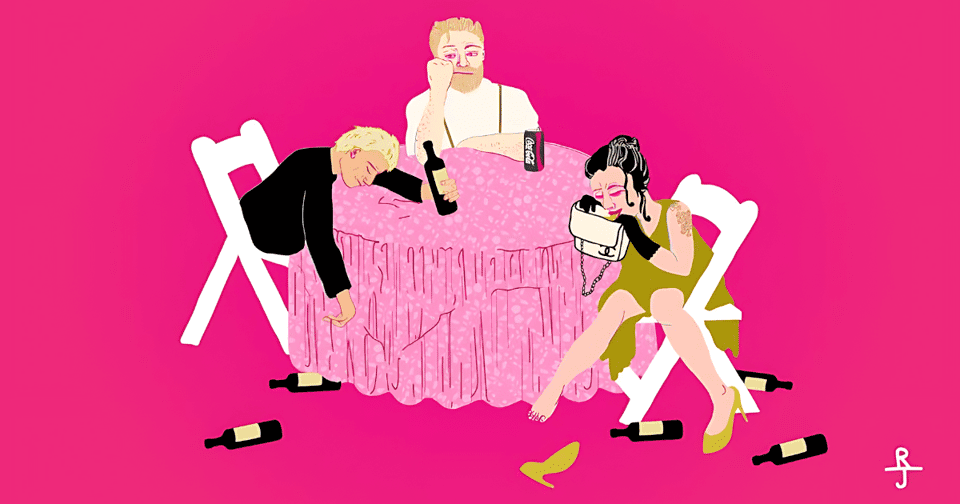
The Cynic’s Guide to Sobriety
I’ve been away plying my trade and visiting long-lost kin among the endless howling voids of Australia’s Gold Coast, and have only just returned to civilisation. Now, I collect my scattered wits, trying and failing to wrestle some cogent sentences out of the black matter of my brain. Luckily, my old mate JJW is here. The JJW stands for Jackson, James, Wood. He’s a good sort, Wood. After 11 years of sobriety in a society that looks aghast at mere moderation, he has some reckons, and he asked if I’d like to publish his latest as a guest piece.
Of course, I did. Take it away, JJ(W).
It’s been a hot minute since I last wrote about alcohol. Surprisingly, the thought of problem solving with booze hasn’t come up in the rolodex my lizard-brain inner-monologue flips through when trying to prompt a response from sober JJW. Spoilers: alcohol is not good at solving problems.
Even when the thought does pop up, I have 11½ years of sobriety to ponder on and help me navigate some of the truly terrible spanners the universe has thrown into my life over recent years.
Because of this long running streak of sobriety — surpassing philately as the longest thing I have ever stuck with — people often ask me something like: got any tips on cutting back the booze / how do I stop drinking alcohol?

Spoilers: alcohol is not a good way to solve problems.
Most recently, a friend — who we’ll call Shitkicker McGee — reached out seeking advice:
Can you offer any guidance on how to reduce/stop drinking? It’s something I would like to do, but I’m not quite sure where to start. I would really appreciate any thoughts that you can share!
Because I am currently in a very productive mood where writing is helping me get into states of flow and process aforementioned spanners, I thought I would tap out my reckons for Shitkicker and share them with you all in the hope it helps you reconsider your relationship with alcohol and/or support you in your sober journey.
To get into the mindset, I went back and read some of the things I wrote in very early sobriety. You can go read them here on The Wireless and Ours and listen to a segment on RNZ where I talked about alcohol and other drugs.
I stand by everything I wrote/said back then. My only thought, with 10 years hindsight, is I should have given the people who got married a heads up about using the dude from their wedding as an example. Sorry team, it was a lovely wedding, and although I haven’t seen you in years, I still think you’re both aces.
(No sorries to the fuckwit who accosted me about not drinking and then passed out in the shower though. Fuck you.)
One passage from this piece stuck with me:
I’m not quite sure why I need to have a drink in my hand to make others feel comfortable. But I am comfortable with taking the time to explain why.
So in that spirit, here are
JJW’s top ten tips for turning tenacious tipples to teetotaling tranquillity
1. Sobriety ain’t for everyone
Stopping alcohol is hard. In the west, we live in an ‘alcogenic society’. Booze is everywhere. It is brewed into our shared culture, from birth to death we celebrate and commiserate with alcohol. We medicate and mediate with it, it’s glorified and demonised. And, because of capitalism, there are very few places / times when alcohol isn’t on sale or straight up being offered to you. So being realistic about your own ability to stop is first and foremost.
For me, it was a simple decision. Alcohol made it easy for my brain to be like: hey, throw that spanner into this good thing, really wedge the fucker in there. But many people who I chat with try sobriety, and discover they don’t have a problem like I did. Which is great for them. They were just going through a tough patch, but the breather from booze helped them reevaluate and reconsider.
2. Make a commitment to yourself / loved ones / close friends
Peer pressure can be good. Making a commitment to yourself is a great place to start. But I don’t think I could have sustained sobriety for so long without the love and support of my family and friends. When I first told people I had stopped drinking, they were like: finally, lol. Thanks team.
But seriously, from that day forward they supported me to make and maintain this very positive decision — remembering and nurturing sobriety and generally being kinder mental health wise. You can’t lose because if people react with anything other than support I would suggest they might not be that good of a friend.
3. Remember: one drink isn’t the end of the world
As per above, there ain’t no getting away from alcohol. So if you do happen to find yourself halfway through a boozy beverage, don’t sweat it. Just like having one Tim Tam doesn’t mean you have to consume the whole packet, one drink is unlikely to harm you too much. It’s excess which is the problem.
The trick is to be mindful and kind to yourself. Which is fucking hard, especially if you’re experiencing a patch of bad mental health. But if you do happen to have a realisation earlier in the evening — before things get out of hand — you do have some agency to switch to the waters, leave the party, or whatever it is you need to do to look after yourself.
Also, if it does turn into a bender: FUCK IT. Start again tomorrow.

Philately and milkshakes. 4. Be upfront with people that you’re not drinking and be honest with them if they ask why
There is no point making excuses or trying to hide it. You miss the opportunity to have a conversation and reinforce why you’re not drinking and/or may never drink again. Obviously this is situation specific, I don’t tend to unload on waiters in busy restaurants by yelling: WHY ARE YOU OFFERING A PERSON IN RECOVERY A GOD DAMN DRINK, YOU SICK FUCK. I just say no thank you, and move on. As per point 2 above, if someone doesn’t support you, fuck ‘em. Go straight to point 5, do not pass go, and …
5. Don’t be afraid to be rude
I am empowering you to stand up for yourself and be strong in the face of people who don’t support you. I give you permission to treat anyone who actively encourages you to drink with extreme hostility. Life’s too short to fuck around with knob heads like ol’ mate who ended up in the shower covered in his own vomit. Perhaps their brains are so addled by alcohol they cannot conceive of a world where people don’t rely on it.
As much as I complain about people who do not get it, most people do. Coming from New Zealand, and living in Australia, the chances are everyone you know has a story of a friend or relative whose life has gone awry because of alcohol.
6. Find decent alcohol-free drinks
Things have gotten better in the sober-safe beverage market in the ten years since I wrote the piece in The Wireless. There are so many great alcohol-free beers and wines available now! You don’t have to just drink coke, orange juice and/or water. There are great kombuchas, shrubs, seltzers, and other low sugar soft drinks too. At my sister-in-law’s wedding they specifically bought a case of non-alcoholic bubbly, and people just started drinking it because it was delicious. At my brother-in-law’s wedding earlier this year they had two alcohol-free beers available and heaps of people were smashing them. Happy days!
7. Get out of your head (in a good way)
One of the biggest things I have learnt over the past wee while, and this applies to all things in life, is pretty much no one cares about anything not directly affecting them. Ergo, hardly anyone will notice you’re not drinking and even fewer will actually care. It’s very self indulgent to assume people are so fixated about you they pay attention to what you’re drinking. Get over yourself, Shitkicker!
Also don’t get out of your head in a different way. Changing from alcohol to cannabis — or anything else — probably ain’t going to make you happier either. As an aside, I’ve also noticed many people in recovery rely on sugar. The plus side of sugar is you’re not likely to piss yourself while dancing on a table at your work Christmas party. Sugar is still pretty unhealthy though, so proceed with caution.
8. There is no tip 8
But here is a picture of a Kōkako eating a pūriri flower.

by Stefan Marks on Flickr and used under CC BY-NC-ND 2.0. 9. Track the data
I have a sober days counting app on my phone. As of today it’s at 4232. That’s a whole heap of days. Whenever lizard-brain says “mmmmm you could have a bottle of champs, yeah boiiiii” I flick it open and check my run streak. Pretty good incentive to stay on the wagon.
I also regularly use an app called How We Feel which is made by psychologists to help people identify and keep track of, you guessed it, how they feel. Bonus is it helps your mental health in general. No lizard brain, I don’t want to snatch that nice police officer’s pistol. Not today. I will, however, open up How We Feel and log I am feeling jittery.
Speaking of logging. Log your exercise in whatever fitness app you use. Log the books you’ve read wherever you do that these days (don’t use GoodReads). Or the movies you’ve watched in Letterboxd. Chat about your latest stamp finds with other philatelists on Canadian Stamp News.
Keep a diary. I now write a diary every day. I record my general mood for the day and specifically three good things / something I am grateful for. I take a moment to reflect, gain perspective, and breathe through the big feels. And fuck, it helps.
By not having hangovers and getting decent sleep, it is surprising how much extra time you can carve out in your life. These are all amazing wonderful things. Make sure you remind yourself about them because our brains are wired to look for negativity. Celebrate cool shit and, if you’re feeling like you might have a bender, go remind yourself hey: life is actually kinda okay sometimes.
10. Get help (if you need it)
Remember, these are just the opinions of some dude who yells his unhinged thoughts into the ether of The Internet. It’s definitely not medical advice, and if you’re seriously struggling (with drinking, mental health, addiction, or similar) there are heaps of services available, online, in-person, professional, or group.
I’ve been seeing the same psychologist for +7 years now and we’ve hit a good rhythm. I take my meds. I do exercise. I let them help me reframe my thinking, and use all the psychological tools available. Cognitive Behavioural Therapy (CBT) is something you can kinda just do on your own once you understand the basics. I don’t think I really understood CBT — despite seeing psychologists on/off since I was 17 — until Blindboy explained it in his podcast. I can’t remember the exact episodes, but it was quite early on. He puts it in easily understandable words while embracing you in the warmth of his podcast hug.
I don’t go to 12 Step meetings anymore, but they were (vaguely) helpful in early recovery/sobriety for something to do which wasn’t drinking. Plus, 12 Step forces you to make amends to people who you might’ve hurt while drinking/drugging. So, if I didn’t do it at the time when I was working the steps, please accept this heartfelt blanket apology for being a see you next tuesday. Twelve Step isn’t particularly evidence based, and can be incredibly toxic, and (as per point 1) sobriety ain’t for everyone. Hence why I don’t particularly recommend it, but there is no harm trying it if you go into it knowing it’s not a panacea.
What I would recommend are the loads of services/groups out there which can, and will, help. My favourite NZ-based one is Living Sober. Whatever you choose, just make sure it is evidence-based.
You really can’t go past self care, being kind to yourself, exercise, being part of a community (I’ve selfishly built my own here, in this newsletter, and here in the real world), talk therapy, and eating healthy. Boring, yes. Effective, totally.

Illustration by Rhiannon Josland, originally for Ours. Thanks, Shitkicker for the prompt. I hope this helps. Always here to talk if you need it and that extends to anyone out there who is reading this. Hit me up by replying to this email and/or smashing this button.
Some final thoughts
Does all this make me a wowser? Probably. By any and all measures alcohol creates significantly more harm than benefits. Should we ban it? No. But we really need to change the playing field in terms of following public health advice around what evidence-based changes can be made to reduce and prevent harm.
We also need to better fund treatment and addiction services to help people. Drinking (or drugging) is not really the problem — plenty of people hold down jobs while getting on the beers (and/or nose beers). The anti-social aspect of addiction is a symptom of a deeper malaise in our societies. Fix economic inequality, build strong communities, get people active, smash capitalism, yadda yadda yadda. You know how it goes. But for now, perhaps start by switching out your next beer for a non-alcoholic one.
Cheers to you!
Stay safe, stay sane
<3
JJW
Josh here again.
Imagine, for a moment, your most incorrigible, pernicious habit. Imagine that it has a powerful psychological and physiological hold on you. Imagine that it is tacitly or overtly encouraged by practically all of society; an endless sea you have no choice but to swim in.
Imagine stopping.
Imagine staying stopped, for any length of time. A month. A year. 10 years. More.
And yet, you remain sober.
That’s what many recovered and recovering alcoholics manage, and they have all my admiration. Everyone has something – often small, sometimes not – that they’d like to stop or start doing consistently. Those who achieve sobriety after alcoholism have achieved this, over much higher stakes than many of us will ever face. Nothing impresses me more.
Well done, JJW old mate. I’m proud to be your friend.
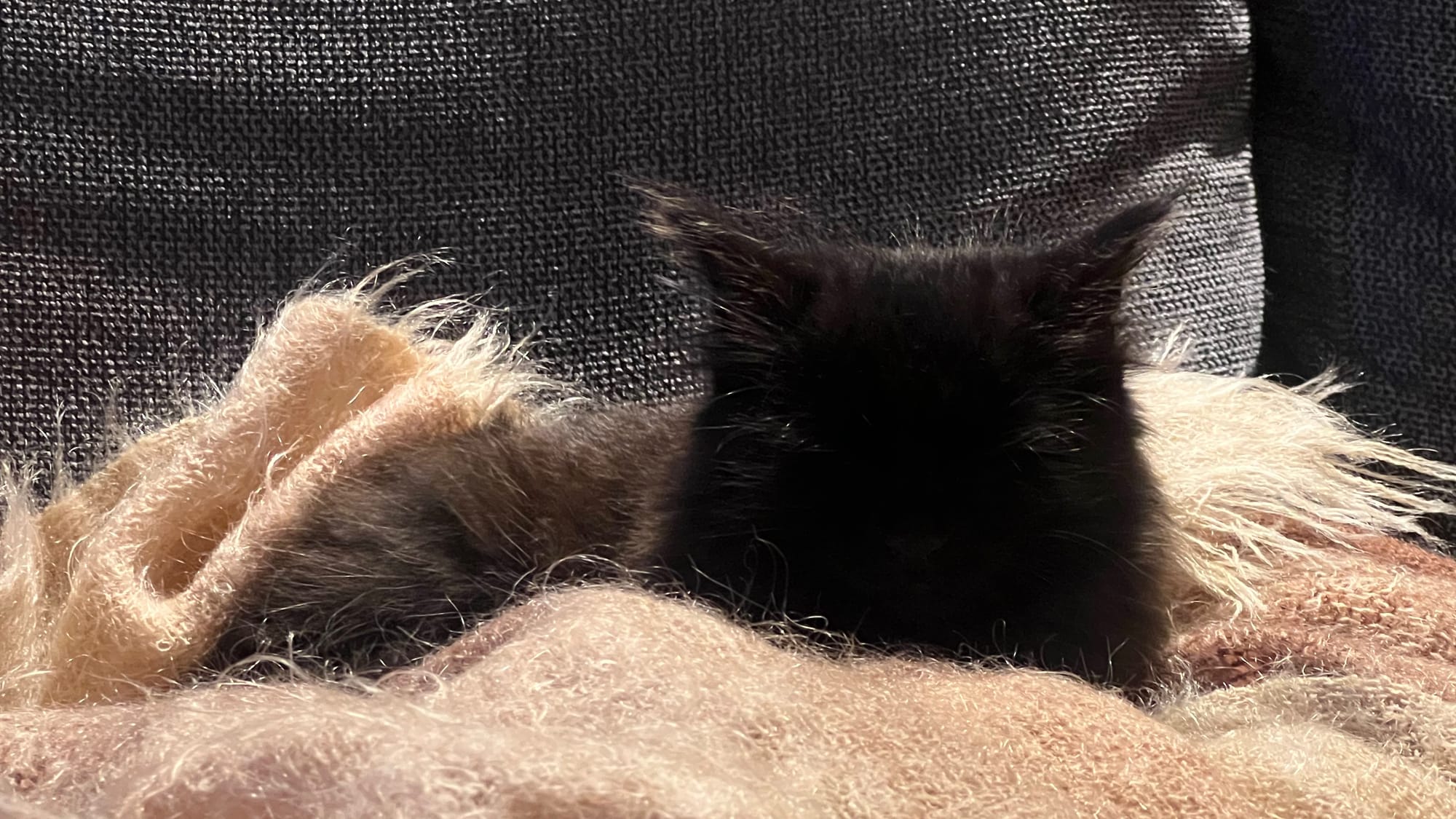
Introducing the Cynic’s Guide to Self-Improvement Podcast
I thought it’d be fun and perhaps even convenient to record some of the posts here as a kind of mini-podcast. So here is the first episode – a recording of last week’s post, Map of the Problematic. (I’ve also added this audio to the original post.)
 Map of the Problematic – The Cynics Guide to Self-Improvement Podcast0:00/1246.02068
Map of the Problematic – The Cynics Guide to Self-Improvement Podcast0:00/1246.02068It seems to be a rule in the writing business that the stuff you like the most is what audiences like the least. I really enjoyed Map of the Problematic, but a somewhat surprising number of subscribers didn’t! While it’s easy to assume that the unsubscribers were just those readers who are also into Andrew Huberman, I doubt that’s the case. I think it’s a bit of newsletter fatigue. God knows there are a lot of these things, with seemingly every made-redundant journalist starting one. I just want to reiterate that while a paid subscription is lovely and helps keep me in coffee, I want this newsletter to stay aggressively free. If a paid subscription causes you any kind of financial hardship, just stop paying (or, preferably, pay someone whose newsletter pays the bills, like Emily Writes. I love her Meditations posts).
Meditations to get you through the weekWho needs a rest? And it’s only Monday! How about some meditations to get you through the week? I hope at least one of these brings you a bit of joy and a bit of calm. You are a half blind seal bathing on the beach along the Whangaparāoa peninsula. You are large and round and perfect. Growing crowds watch you in awe. You listen as they coo and gasp in wonder at your fat belly. It is full of fish or whatever seals eat. You are happy. Your only job is to lie on this beach and bring joy to onlookers who will hold the memory of you through generations. In years to come, they will walk one day with a friend or a grandchild and point to the spot where you once bathed and say “I saw a fur seal here once”. And they will smile as they remember. And this is your sweet and lovely legacy.The best way to pay me is to DM someone who has buyers remorse over purchasing a second-hand copy of 12 Rules for Life and getting them to subscribe, for free, to this newsletter.
So here are some links to some stuff I found improved my self this week:
Steal some writing time back
Nadine Ann Hura is always worth reading, and she’s got a rather lovely observation on stealing time to write – in poem form!
Steal back your life
Time to write is always stolen
So get used to thieving
I think of all the words I’ve ever written furtively, fearfully, faithfully
Hiding notes inside the spines of books penned by others
Never daring to describe myself as a writer
despite writing being the only thing I have ever done with any consistency
and not once because someone gave me the time
I am a thief, not a writer.I relate, heavily. Go subscribe (for free) to read the rest. Newsletter fatigue notwithstanding, you won’t regret having Nadine’s writing in your inbox.
Time to Write is Always StolenSo get used to thieving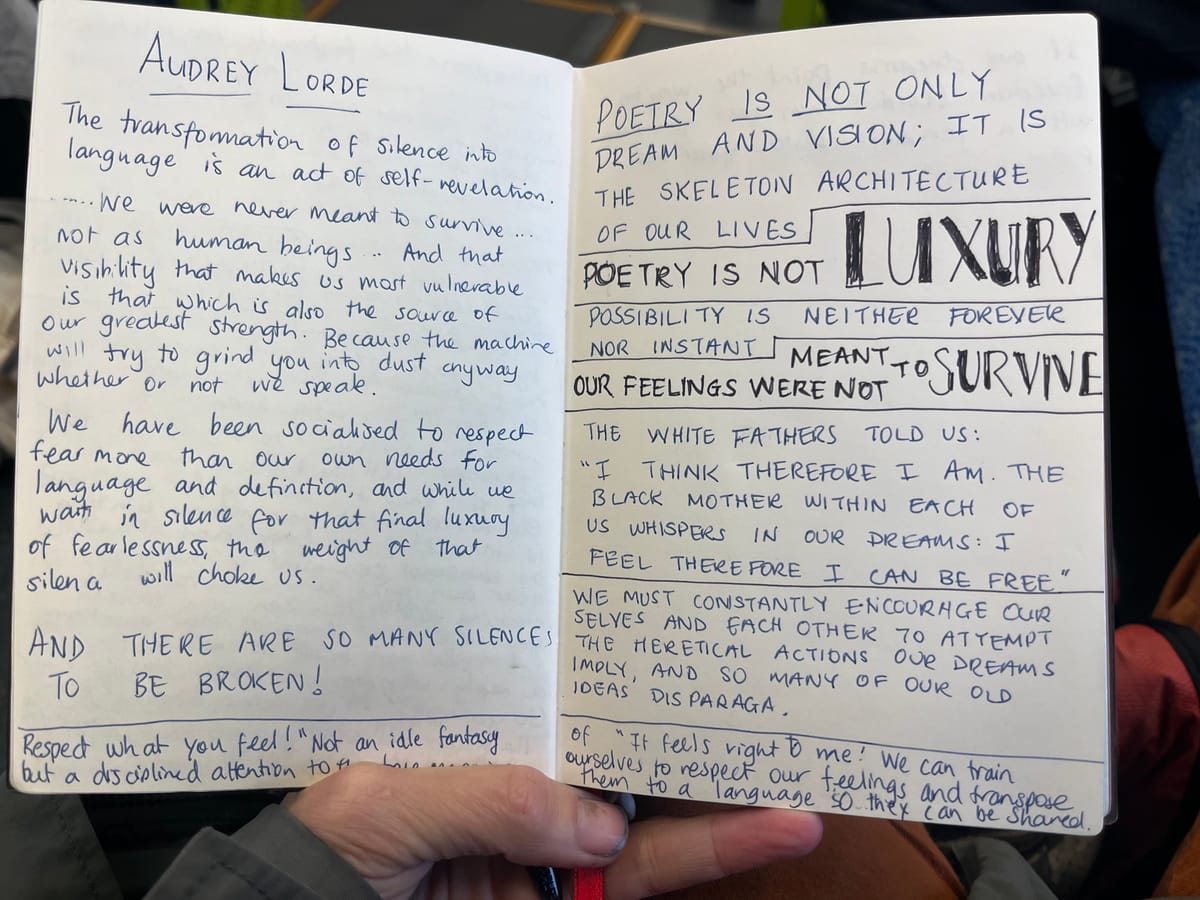
Bro, read this essay on bro culture, it’s sick bro
After reading Map of the Problematic, a bunch of people recommended this essay by Patrick Wyman. I’d already seen it, but it was well worth the re-read.
But this kind of Bro Culture is also intimately connected to the emergence of a new kind of American ethnonationalism, rooted in its peculiar conception of masculinity, its collection of lifestyle products, its worship of guns, and its aversion to self-reflection. Maybe you can just have the big dudes lifting stones without the drive to pardon Navy SEALs convicted of horrific war crimes; but then again, maybe the algorithms make them impossible to separate.
Bro Culture, Fitness, Chivalry, and American IdentityThis is a foundational text of American Bro Culture: two large men shooting the shit about lifting weights, working in references from everything to guns to Brazilian Jiu-Jitsu to football in the process. The subject of the day is the squat, and whether one of the two participants – Echo – neglects this essential lift.Life Coaching is (very often) a scam
Caveats: I think that some kinds of coaching – ADHD coaching, business coaching, sports coaching, even life coaching, whatever that is – are not scams, or at least, they don’t have to be. I’ve got an article coming up on coaching stuff, but in the meantime, use this NYT gift link to gape in horror at how thoroughly some people have been fleeced by the deeply unethical aspect of an unregulated industry:
After completing the program, Ms. Mullett was certified by the school and hoped to start coaching. But although she had initially been told that her certification would give her “everything I needed to make my first $100,000,” Ms. Mullett found herself short of clients and scrambling to make any income. The solution that she was offered? To spend more money on being coached.
Is Reddit OK?
A social experiment: Go to one of the self-improvement subreddits, like r/selfimprovement, sort the posts by controversial, and witness the absolute state of it.

How is babby formed, but for self-improvement There’s been a huge increase in GPT spam to Reddit lately and the self-improvement subreddits have been hit hard. They’re full of posts that are just some spammer’s poorly-written AI summary of a self-help book studded with affiliate links, and are somehow escaping moderator attention. But sometimes you get something so impossibly odd that only a human could have written it.

You learn something new every day. Today we learned about “ghost loads.” I just thought this was funny
I don’t mean to dunk on this newsletter – I’m sure it’s good, and paid subscriptions help enable writers to do fun activities like “eat,” but I thought this was amusingly emblematic of the great Paywalling of Everything:

Here’s what she had to say: this post is for paid subscribers. More Birmo wisdom
If there comes a day when John Birmingham stops churning out quotable articles that boldly identify the self-improvement elephant in the room especially as it relates to writers, I’ll stop plugging him in my own newsletter – but today is not that day.
The Blergh, whatever you want to call it, arises from a loss of meaning, a loss of any connection to what’s grounded and firm. For us, specifically, I think it’s triggered by the rootless, untethered feeling of floating around on an endless sea of digital shit. And you what isn’t gonna help with that? Some glowing, beady-eyed, ratbastard influencer yammering at you to get one per cent better every day.
Failure is the point.We get sold a lot of shit in this crazy, go-go world of ours. Climate change is no biggie. Delicious carob animal snacks with half the calories but all the flavour. “People are looking at your LinkedIn profile, John!” But of all this dubious content, perhaps the most pernicious is the idea that we need to be one percent better every day.
Pilgrim’s progress
Let’s take a break from pull-up updates. Look, self-improvement is all about doing things yourself, right? So what could be more self-improvementing than self-surgery?
Here’s the story. I think I mentioned a while back that I’d picked up a splinter while gardening. “Splinter” doesn’t perhaps do it justice. It was a big bit of sharp stick that shot deep into the ball of my thumb, and when I pulled it out, it dropped off a friend. This splinter stayed in my thumb for two months, long after the entry wound had completely healed over. I had two ultrasounds to image the thing – one from a startlingly inept technician who tried doggedly to scan the wrong bit of my thumb and then snarled at me for daring to whistle in an attempt to take my mind off the whole ordeal – and I finally got surgery exactly one month ago today.
Unfortunately, the surgeon missed the splinter. She had promised that if they couldn’t get it out on the first attempt the only recourse was to (I’m using her term) flay my thumb wide open. I didn’t feel like going through this, and I’d figured out I could kind of push the splinter towards the end of my thumb, as it seemed to have made a kind of tunnel for itself – like a water-slide, but with pus. So I sterilized one of my craft scalpels, made a small cut, and slowly pulled it out with tweezers. It’s now a great life regret that I didn’t take a video of the process, but I did get this pic.

The splinter was pretty pristine given how long it had lived in my thumb. If anyone is looking for a variety of wood that can survive being carried around in their bodies for several months, I recommend whatever my hedges are made of. The moral of the story is obviously that if I ever need any kind of surgery in the future, I’m going to do it myself, and you should too.
Pango
You asked, the Cynic’s Guide to Kitten Pictures delivered. Here he is looking alternately fiendish and adorable while trying not to fall asleep.

Expect regular Pango updates in future, and possibly podcasts of select posts too!
Dopamine, now in song form
Also, let me know what you thought of the Cynic’s Guide podcast! You may now type any words you choose in the comments.









